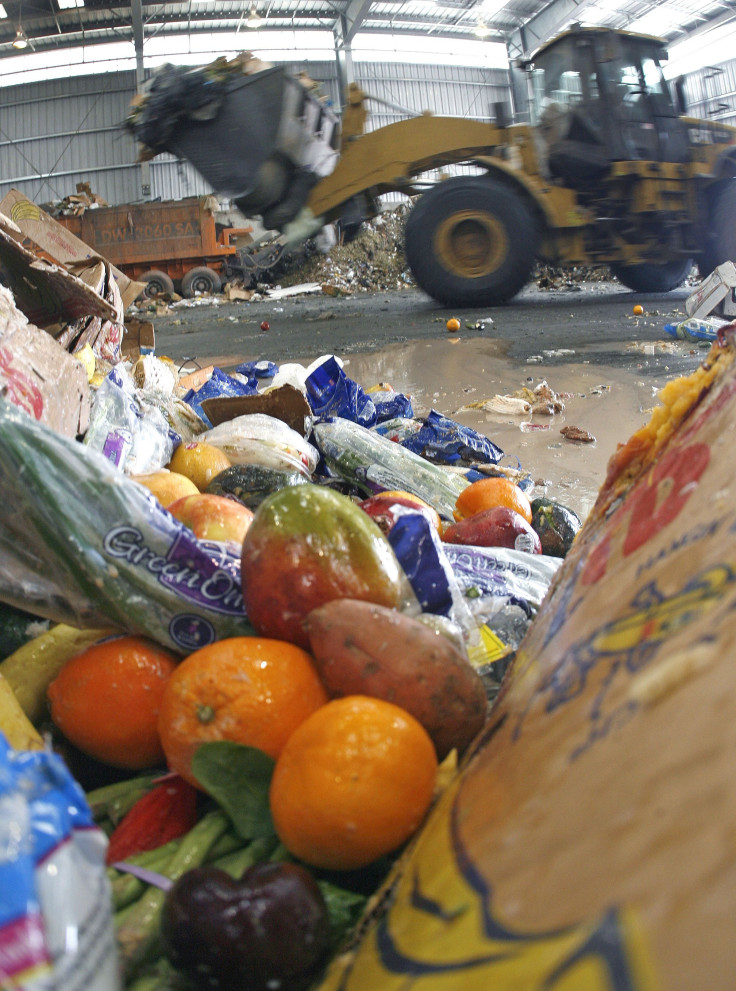Americans Waste Food Worth $162B Every Year: Report

A majority of Americans waste more food than they are aware of -- $162 billion worth of it each year -- according to a new study from Johns Hopkins University. And most are unconcerned about the environmental impact of wasted food, the study also found.
The report, published Wednesday in the journal PLOS ONE, stated that the top foods wasted, by weight, are fruits and vegetables, which are the most vulnerable because of their perishability and bulk. And according to the researchers, between 30 percent and 40 percent of all the food supplied in the U.S. is wasted -- and most of it is thrown out by households, restaurants and stores.
"Americans perceive themselves as wasting very little food, but in reality, we are wasting substantial quantities," Roni Neff, lead author of the study and director of the Food System Sustainability and Public Health Program at the Johns Hopkins Bloomberg School of Public Health, said in a press release. "It happens throughout the food chain, including both a lot of waste by consumers, and a lot on our behalf, when businesses think we won't buy imperfect food. The root causes are complex," he added.
The study surveyed 1,010 Americans in April 2014 and the researchers focused on awareness, knowledge, attitudes and behaviors of the participants related to wasted food. The study team also found that only 10 percent of those surveyed termed the impact of wasted food on the environment as “very important,” despite general concerns about the issue.
The researchers also studied the practice of composting food and found that 41 percent of those surveyed did not bother about the amount of food that was wasted. Overall, the study showed that 75 percent of the respondents believed they wasted less food than the national average.
According to the survey, food safety and a desire to consume only the freshest produce were listed as the main reasons for people throwing away fruit and vegetables. The amount of food wasted places a huge drain on the environment when approximately 30 percent of fertilizers, 35 percent of fresh water and 31 percent of cropland in the country were used to cultivate the food that was ultimately trashed, researchers noted in the study.
The findings, according to the study's authors, are relevant for educators working to reduce food wastage; policymakers looking to regulate the food industry with laws to ensure honest labeling and packaging; and businesses looking to understand consumers' changing needs.
"Consumer waste of food in the U.S. represents a powerful quintuple threat," Neff said, in the release. "Reducing it may improve food security, nutrition, budgets, environment and public health."
© Copyright IBTimes 2024. All rights reserved.






















